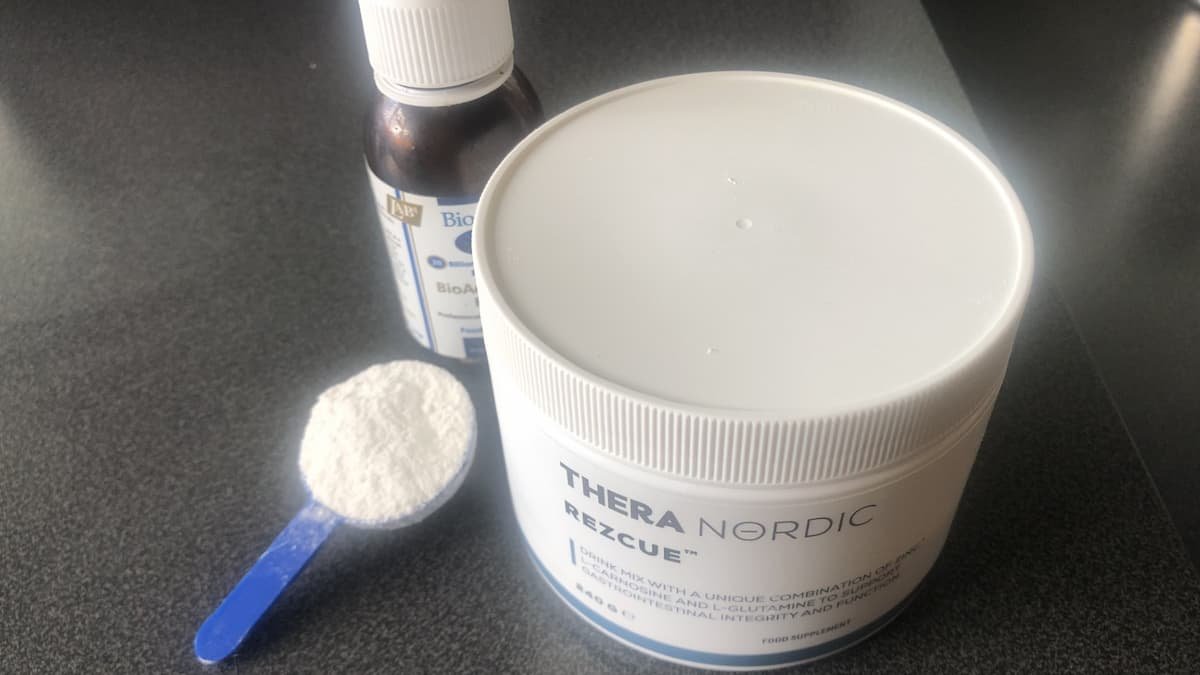Irritable Bowel Syndrome (IBS) is a common gastrointestinal disorder that affects millions of people worldwide, in fact, it is estimated to affect 10-15% of people worldwide, and Bupa states that it is thought 1 in 5 people in the UK suffer with IBS.
Symptoms of IBS include:
- Pain or discomfort in your abdomen.
- Changes in your bowel habits, either suffering from constipation or diarrhea, however, some people can have a mix of both.
- Your abdomen may look and feel bloated.
- You may have increased flatulence.
Other Symptoms can also occur with IBS, these include:
- Indigestion
- Heartburn
- Acid reflux
- Low energy
- Depression
- Headaches
Despite its prevalence, the exact causes of IBS remain somewhat elusive, which can make managing the condition challenging for those who suffer from it.
IBS is a common clinical label for medically unexplained gastrointestinal symptoms, meaning generally there isn’t a lot of help from the NHS to sufferers of this condition.
However, research has uncovered several contributing factors that can lead to the development of IBS.
In this blog, I’ll explore the most common causes and how they might interact to trigger this complex condition.

1. Causes of IBS: Gut-Brain Axis Dysfunction
One of the leading theories in understanding IBS is the role of the gut-brain axis—a bidirectional communication system between the gut and the brain.
More specifically how our gut bacteria communicate with our brain.
This study covering IBS, gut bacteria, and the gut-brain axis suggests when this communication pathway is disrupted, it can lead to abnormal gut motility, heightened sensitivity to pain, and changes in bowel habits.
Stress, anxiety, and depression are often linked to IBS because they can influence the gut-brain axis, worsening symptoms in many individuals.
2. Gut Microbiota Imbalance
The gut-brain axis leads to point number 2.
The human gut is home to trillions of microorganisms, collectively known as the gut microbiota.
These microbes play a crucial role in digestion, immune function, and overall gut health.
An imbalance in gut microbiota, known as dysbiosis, has been implicated in IBS.
Studies suggest that people with IBS often have a different composition of gut bacteria compared to those without the condition.
This imbalance may lead to increased gas production, altered gut motility, and heightened sensitivity in the intestines (linking back to point 1), all of which contribute to IBS symptoms.
Gut dysbiosis can also lead to Leaky Gut.
Please read my various blogs on Leaky Gut: including Leaky Gut in Endurance Athletes, Why a Holistic Approach Should be Used in Sports Nutrition, and The Best Supplements for Leaky Gut.
3. Food Intolerances and Sensitivities
Certain foods are known to trigger IBS symptoms in many individuals.
Common culprits include high-fat foods, caffeine, alcohol, and foods high in FODMAPs (fermentable oligo-, di-, mono-saccharides, and polyols).
FODMAPs are types of carbohydrates that are poorly absorbed in the small intestine and can cause excessive gas, bloating, and diarrhea in sensitive individuals.
You can learn more about a low FODMAP diet. However, if you wish to try this diet it is advisable to contact a fully qualified Nutritionist.
Other food intolerances can also cause symptoms. Common food intolerances include; wheat, gluten, milk, other dairy products, and yeast.
If you suspect you may have food intolerances it is worth getting in touch with a Nutritional Therapist who can advise you on possible testing and or an elimination diet.

4. Post Infectious IBS
Some individuals develop IBS after experiencing a gastrointestinal infection, such as gastroenteritis.
This can be common after foreign travel.
This is known as post-infectious IBS (PI-IBS).
The infection may cause inflammation and changes in the gut lining, leading to long-term alterations in gut function.
Inflammation may also disrupt the gut microbiota, and gut-brain axis and lead to Leaky Gut, contributing to the development of IBS symptoms.
5. Genetic Factors
While IBS is not directly inherited, there is evidence to suggest that genetics play a role in its development.
Individuals with a family history of IBS are more likely to develop the condition themselves.
A study found relatives of an individual with IBS are two to three times more likely to have IBS themselves.
Genetic predisposition may influence how the gut responds to certain stimuli, how pain is perceived, and how the gut-brain axis functions, all of which are factors in IBS.
6. Altered Gut Motility
Gut motility refers to the contractions of the muscles in the gastrointestinal tract that move food through the digestive system.
In IBS, this process can be disrupted, leading to either slowed (constipation-predominant IBS) or accelerated (diarrhea-predominant IBS) transit of food through the intestines or in many cases a mix between the two.
These changes in gut motility can result from a variety of factors, including dysbiosis, inflammation, and hormonal imbalances.

7. Hypersensitivity in the Gut
Many people with IBS experience heightened sensitivity in the gut, known as visceral hypersensitivity.
This means that the threshold of pain in the internal organs is lower than an individual who hasn’t been diagnosed with IBS.
This study suggests visceral hypersensitivity is thought to result from an overactive nervous system when responding to stimuli from the gastrointestinal tract.
It also suggests that this increased visceral hypersensitivity can be caused by dysbiosis and chronic inflammation of the intestinal mucosa, which can lead to Leaky Gut.
8. Stress and Emotional Factors
Stress can significantly worsen IBS symptoms.
The gut-brain axis means emotional stress can directly affect gut function, leading to increased pain, bloating, and altered bowel habits.
Stress can also lead to dysbiosis and chronic low-grade inflammation of the gastrointestinal tract.
This links with point 7, as it can lead to increased visceral hypersensitivity.
Many people with IBS report that their symptoms flare up during times of high stress or anxiety.
This review shows that psychological stress is an important factor in the development of IBS and that IBS can be considered a combination of an irritable bowel and an irritable brain.
Please read my blog on Nutrition for Mental Health.

Conclusion
You will notice that the causes of IBS are multifaceted and generally involve an interplay of various factors, including gut-brain axis dysfunction, gut microbiota imbalances, food sensitivities, and stress.
These issues generally interrelate, for example, gut microbiota imbalances can be caused by stress, and food sensitivities can lead to inflammation in the gastrointestinal tract which can lead to leaky gut which can also cause IBS symptoms.
Understanding these underlying causes can help individuals manage their symptoms more effectively.
Regarding treatments for IBS, the focus should be on dietary changes, stress management, and improving gut health, as this can significantly improve the quality of life for those affected by this condition.
Please stay tuned for another blog shortly where I will explain how Nutritional Therapy can help with this condition.
As a Nutritional Therapist, one of my specialist areas is gut health.
I can use cutting-edge technology via stool testing (which unfortunately isn’t available on the NHS) from Genova Diagnostics and Invivo Healthcare.
This testing checks for levels of different bacteria and yeast in the gastrointestinal tract, along with various inflammatory markers so that the causes of your IBS can be more easily pin-pointed and then a suitable protocol can be put in place to help improve your health.
The 4 R’s approach is often used to help improve IBS in many individuals and can be adapted for each specific person.
If you’d like to add exercise to a well-being package I am also a Sutton Coldfield-based Personal Trainer and you can combine both Nutritional Therapy with Personal Training to optimise your health.
Combining exercise with Nutritional Therapy is a great way to reduce stress, which of course is often a big factor in reducing IBS symptoms in many people.
If you suspect you have IBS, working with a healthcare provider is advised to develop a personalised management plan to help improve your health and help you get the most fulfillment from your life.








